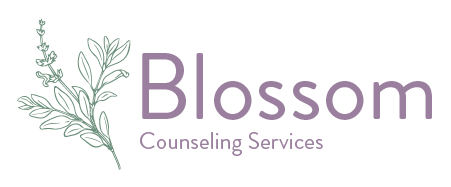Have you ever felt like you’re carrying emotional weight that doesn’t entirely belong to you? Like you’re stuck in patterns or pain that you can’t fully explain?
You’re not alone—and what you may be experiencing is generational trauma.
In this post, we’ll define generational trauma, look at how it impacts your mental and emotional health, and most importantly—how you can begin to break the cycle for yourself and future generations.
What Is Generational Trauma?
Generational trauma, also known as transgenerational or intergenerational trauma, refers to the psychological and emotional wounds that are passed down from one generation to the next. These traumas are often rooted in unresolved pain, fear, and survival patterns from major life events.
This type of trauma doesn’t just live in family stories—it can shape belief systems, parenting styles, emotional responses, and even your sense of identity.
Common Sources of Generational Trauma:
-
War or forced migration
-
Systemic racism or cultural oppression
-
Domestic violence or childhood abuse
-
Addiction, poverty, or incarceration
-
Loss, grief, and unspoken family secrets
You might not have lived through these events yourself, but their effects can live in your nervous system, your relationships, and your behavior.
Signs You Might Be Carrying Generational Trauma
Generational trauma can manifest in subtle and not-so-subtle ways. Here are a few signs to look out for:
-
Chronic anxiety or depression that seems untraceable
-
Repeating cycles of unhealthy relationships
-
Emotional numbing or hyper-reactivity
-
Difficulty trusting others or feeling safe
-
Perfectionism or fear of failure
-
Struggles with self-worth or identity
-
Addictive behaviors or patterns of avoidance
How to Break the Cycle of Generational Trauma
While you can’t go back and rewrite your family’s history, you can choose what comes next. Breaking generational trauma starts with awareness and continues with action. Here’s how:
1. Educate Yourself
Learn to define generational trauma clearly. Start exploring your family history—both the spoken and unspoken stories. Understanding where your patterns originate is a powerful first step toward healing.
2. Seek Professional Support
Trauma-informed therapists can help you process pain that isn’t fully yours. They use tools like EMDR, somatic therapy, and inner child work to help you release inherited trauma safely.
3. Break Unconscious Patterns
Start paying attention to behaviors you might be repeating—people-pleasing, avoidance, anger outbursts, or detachment. Ask yourself: Is this mine? Or was it taught, modeled, or inherited?
4. Practice Self-Regulation
Learning to regulate your nervous system is key. This could mean daily meditation, grounding exercises, journaling, or gentle movement like yoga or walking. Small, consistent acts of self-care help rewire your response to stress.
5. Open Up the Conversation
Talk with trusted family members about what you’re learning. Even if they don’t understand right away, naming the trauma brings light to what was once hidden—and that’s where healing begins.
What Is Considered Traumatic?
Trauma is not defined solely by the event—but by the emotional and psychological impact it leaves behind.
Trauma occurs when an experience overwhelms your ability to cope and leaves a lasting mark on your nervous system. For some, this could be a major car accident or natural disaster. For others, it might be chronic emotional neglect, bullying, or never feeling seen or safe.
What’s traumatic for one person may not be for another—and that’s okay. The key is to validate your own experience without comparison.
Healing Is Possible
Generational trauma doesn’t have to define your future. Every time you choose awareness over autopilot, compassion over shame, and curiosity over judgment—you are changing the story for yourself and your family.
Breaking the cycle may not be easy, but it is powerful. You are not alone, and you don’t have to carry it all by yourself.
FAQs: Define Generational Trauma
What is considered generational trauma?
Generational trauma refers to the emotional and psychological wounds inherited from your ancestors due to unresolved trauma. It can stem from major historical events or ongoing family dysfunctions like abuse, addiction, or neglect. The trauma gets passed down through behaviors, beliefs, and nervous system responses.
What does it mean to break generational trauma?
Breaking generational trauma means becoming aware of inherited patterns and choosing to heal rather than repeat them. It involves recognizing unhealthy cycles, seeking support, and cultivating new behaviors and beliefs that promote emotional well-being and resilience.
What are the 8 childhood traumas?
According to the Adverse Childhood Experiences (ACE) study, the most common childhood traumas include:
-
Emotional abuse
-
Physical abuse
-
Sexual abuse
-
Emotional neglect
-
Physical neglect
-
Witnessing domestic violence
-
Substance abuse in the home
-
Separation or divorce of parents
These experiences can significantly impact mental, emotional, and physical health if left unaddressed.
What qualifies as trauma?
Trauma is any experience that overwhelms your ability to cope and causes lasting emotional distress. It includes both acute events (like accidents or assaults) and chronic stressors (like neglect or repeated criticism). Trauma is subjective—what qualifies depends on how the experience is processed by the individual.
Ready to Begin Healing?
If you’re curious about whether generational trauma is affecting your life, or you’re ready to take the first step toward healing, connecting with a trauma-informed therapist can be life-changing.
Start your healing journey today.
Learn more about trauma therapy and how to reclaim your story—on your terms.
Get Started
You may call, text message, email, or fill out the form to reach us. We will respond within 48 hours, Monday through Friday.
We Will Help You Find Your Fit
We know that looking for a counselor can feel overwhelming.
We are here to help guide you to the counselor that is best for your needs. If that counselor turns out to
not be in our practice, that's okay. We know great counselors that we'd be happy to refer you to.
What’s most important to us is that you get connected with the help you need. We are here for you.

